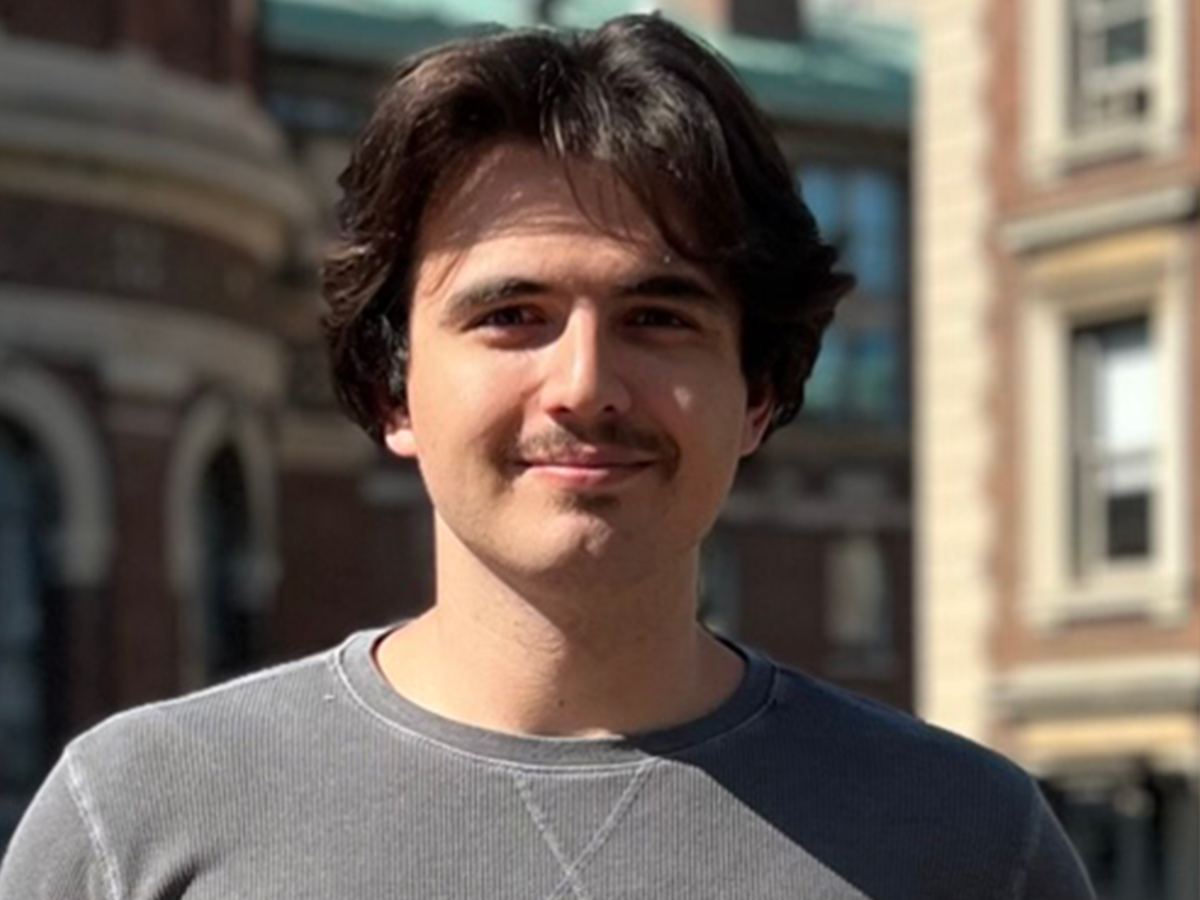Daniel Thomas is a recipient of the Lydia, Andrew, and George Bazarko Ukrainian Fellowship and Shkilnyk Fellowship for Ukrainian Studies, as well as the PepsiCo Summer Travel Fellowship for 2024 field research in Poland.
What region/topics are you focusing on at the Harriman Institute?
I focus on the history, politics, and society of Ukraine, although I have a particular knack for studying the history and culture of Donetsk and Luhansk regions. I avoid the term “Donbas,” a shorthand for “Donets Basin,” as many locals find it reductive, overlooking the diverse cultures of Donetsk and Luhansk, which extend beyond the Basin and are not defined by its coal resources. I believe that understanding these regions has played a vital role in not only Ukraine’s history but global history and that local perspectives are often overlooked when looking at these areas. Moreover, Donetsk and Luhansk lie at the center of Russia’s imperialist designs on Ukraine. On a more personal note, attempts by locals and refugees to counter Russification efforts in these regions are admirable and deserve greater attention.
What is your thesis about?
My thesis explores how historians and activists from Donetsk and Luhansk counter Russian efforts to Russify their regions by challenging the portrayal of Donetsk and Luhansk as inherent parts of the “Russian World” and resisting the imposition of a Russian-leaning regional identity in occupied areas. Through their work in media, activism, and social campaigns, these historians and activists reframe Donetsk and Luhansk’s histories, countering pro-Russian myths and educating fellow Ukrainians about the local Ukrainian identities of these areas. Using regional studies and the concept of “securitization of history” (i.e., framing the telling of history as a national security issue), I examine how Donetsk and Luhansk historian-activists reclaim their regions’ histories from Russifying narratives to strengthen Ukrainian identity, counter Russian misinformation, and bolster national security. Relatedly, my study also reveals the power of historical narratives in wartime and presents findings that apply to other global cases.
What are some of your favorite things about studying here?
The epistemic community at Harriman. “Epistemic” in this context is just a high-falutin way of saying that the people here, be they students, professors, or staff, can lend you some valuable insights on not just Eurasia as a region but other topics as well. The Ukrainian Studies Program at Columbia has dramatically expanded my understanding of Ukraine’s rich literary and folk cultures. Professors Yuri Shevchuk and Mark Andryczyk and my thesis advisor, Emma Mateo, have significantly sharpened my analytical skills concerning Ukraine. While I came in with some knowledge, they provided the theoretical frameworks and historical context needed for deeper insights into topics like Ukrainian national identity and regional history. The Harriman faculty and staff have also been incredibly supportive, helping me navigate challenging technical issues with care and understanding.
What’s your most memorable experience here so far?
Interviewing and engaging with scholars and figures I have studied throughout my years of research on Ukrainian society and Eurasia. Through Harriman’s Ukrainian Studies Program and the Program on U.S.-Russia Relations (PURR), I have engaged with figures like Soviet historian Sheila Fitzpatrick, writer-activist Olena Stiazhkina, and myriad Ukrainian cultural icons, such as Volodymyr Rafeyenko, Ostap Slyvynsky, and Yuri Andrukhovych. Professors Yuri Shevchuk, Mark Andryczyk, and Elise Giuliano facilitated many of these opportunities, and I am forever grateful for their efforts.
Where in the region have you traveled?
As an undergraduate at Emory, I visited Kyiv twice to conduct archival research and interview individuals who lived in post-Soviet Donetsk and Luhansk regions. After my undergraduate studies, I visited Kyiv, Lviv, various towns and villages in Western and Central Ukraine, and, after being displaced from Ukraine by Russia’s full-scale invasion, most regions of Poland (the only Voivodeship I have not visited is Lubusz). Thanks to the Harriman Institute’s generous PepsiCo Summer Travel Fellowship, I was able to revisit Poland for field research last summer.
Fun fact:
Over the past several years, I have developed an incredible appreciation for Georgian cuisine and am in the process of learning how to make khachapuri and khinkali.


